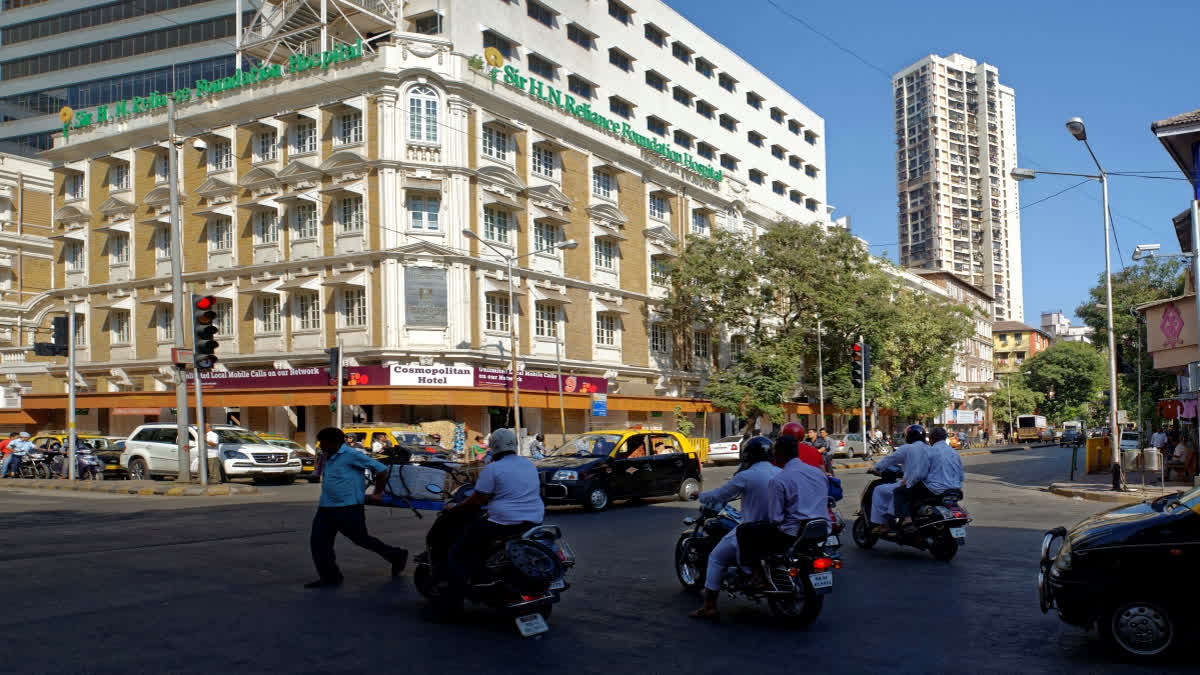New Delhi:Admittingthat the antimicrobial resistance (AMR) burden in India is among the highest in the world, the Indian Journal of Medical Research (IJMR) has said thathealthcare-acquired infections (HAIs) and lack of awareness about it lead to AMR which is one of the top global public health and development threats.
“One of the significant contributors of AMR burden in India is healthcare-acquired infections. Healthcare facilities are often the starting point or multiplier for AMR infections, which can contribute to further transmission in the community locally and internationally," the open journal of IJMR said in its latest issue.
The research paper further stated that the high prevalence of AMR in HAIs warrants the need to better understand the drivers of AMR in Indian hospitals.
“However, there is a paucity of knowledge on factors contributing to AMR in HAIs in Indian hospitals; as a result, the optimal prevention measures needed to inform interventions to counteract AMR are mostly unknown," it said
Although country-wide HAI rates are not available, an earlier study in intensive care units (ICUs) in 40 Indian hospitals found pooled device-associated HAI rates to be substantially higher than the United States Centers for Disease Control and Prevention's (CDC) National Healthcare Safety Network median rates, despite Indian ICUs having lower device utilisation ratios.
Central line-associated bloodstream infection (CLABSI) rates in Indian ICUs were reportedly at least five times higher than rates in the United States ICUs, the findings said.
Antimicrobial resistance is one of the top global public health and development threats. It is estimated that bacterial AMR was directly responsible for 1.27 million global deaths in 2019 and contributed to 4.95 million deaths.
Dr Tamorish Kole, past president of the Asian Society for Emergency Medicine told ETV Bharat that patients should stop using antibiotics on their own as this has become a common practice in India.
"Acknowledging the same, India's National Action Plan (NAP) to combat Antimicrobial Resistance (AMR) was unveiled in April 2017 by the Union Ministry of Health and Family Welfare. The NAP outlines a comprehensive strategy to address AMR, focusing on several key objectives like enhancing awareness, strengthening surveillance, infection prevention and control, research and development and collaborative activities," said Dr Kole.
What WHO says?
According to the World Health Organisation (WHO), antimicrobial resistance occurs when bacteria, viruses, fungi and parasites no longer respond to antimicrobial medicines. As a result of drug resistance, antibiotics and other antimicrobial medicines become ineffective and infections become difficult or impossible to treat, increasing the risk of disease spread, severe illness, disability and death.
More concerning is the high prevalence of AMR among organisms causing these infections. The Indian Council of Medical Research (ICMR) HAI surveillance network, involving 26 tertiary care hospitals in India, reported that carbapenem resistance in Escherichia coli, Acinetobacter species, Klebsiella species and Pseudomonas species causing CLABSIs ranged from 53 per cent (Pseudomonas species) to 77 per cent (Acinetobacter species).
Lack of Infrastructure & Awareness
Highlighting that interventions proven to be successful in high-income countries may not be applicable to Indian hospitals, due to differences in the epidemiology of HAIs, the IJMR said in its paper that hospital infrastructure and care delivery models, cultural practices, along with financial and skilled personnel resource limitations.
A recently published study from a neonatal ICU in India in collaboration with Johns Hopkins University found that the highly-resistant, gram-negative pathogens causing neonatal sepsis are acquired from the hospital environment, rather than from maternal vaginal or intestinal flora, the research paper said.
Another recent study performed in two Indian hospitals in collaboration with Washington University in St. Louis reported that approximately half of the hospital-onset bloodstream infections were preventable when infection prevention measures were strictly followed, and central lines were the major source of hospital-onset bloodstream infections.
"India faces a significant AMR challenge, and concerted efforts are needed to combat this growing threat. Strengthening surveillance, promoting responsible antibiotic use, and fostering collaboration are vital steps toward a healthier future. All of these are the prime responsibility of healthcare professionals," Kole said.
Need proper training
There are currently no formal training programmes aimed at building capacity in hospital epidemiology and infection control research in India. The paper said that the presence of the ICMR HAI surveillance network is an ideal opportunity to initiate and implement such a training program.
"The training should focus on understanding HAI epidemiology, using advanced research tools such as whole genome sequencing, metagenomics and designing intervention studies applicable to an Indian healthcare setting," it said.
According to the IJMR Paper, the Centre should consider investment into interdisciplinary hospital infection prevention research training programmes in partnership with funding agencies, like the United States National Institute of Health, the Centers for Disease Prevention and Control, the Wellcome Trust and the Bill and Melinda Gates Foundation.
"Advancing knowledge on contextual infection prevention measures in healthcare facilities in AMR hotspot countries such as India is critical to address the AMR pandemic," the IJMR added.
